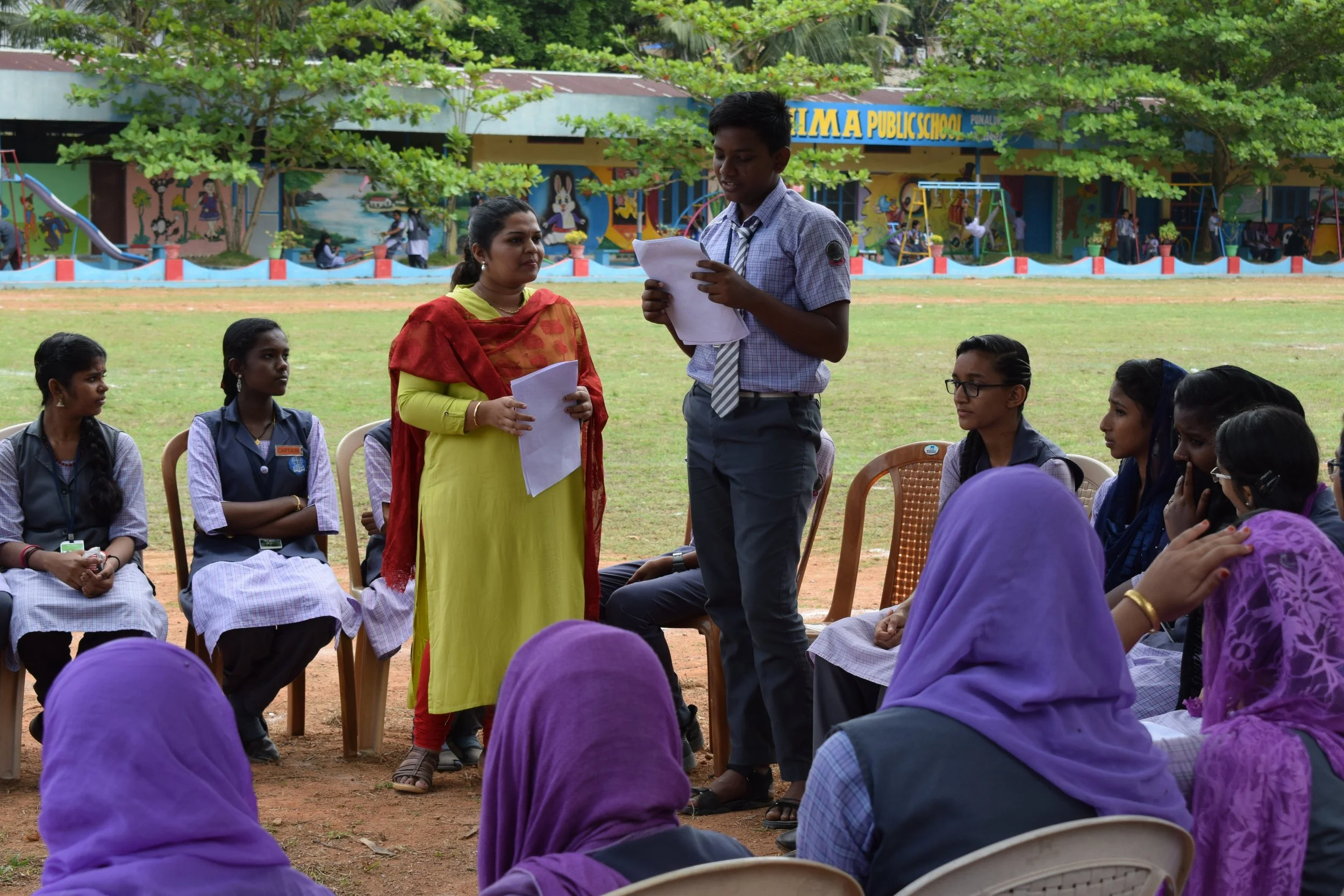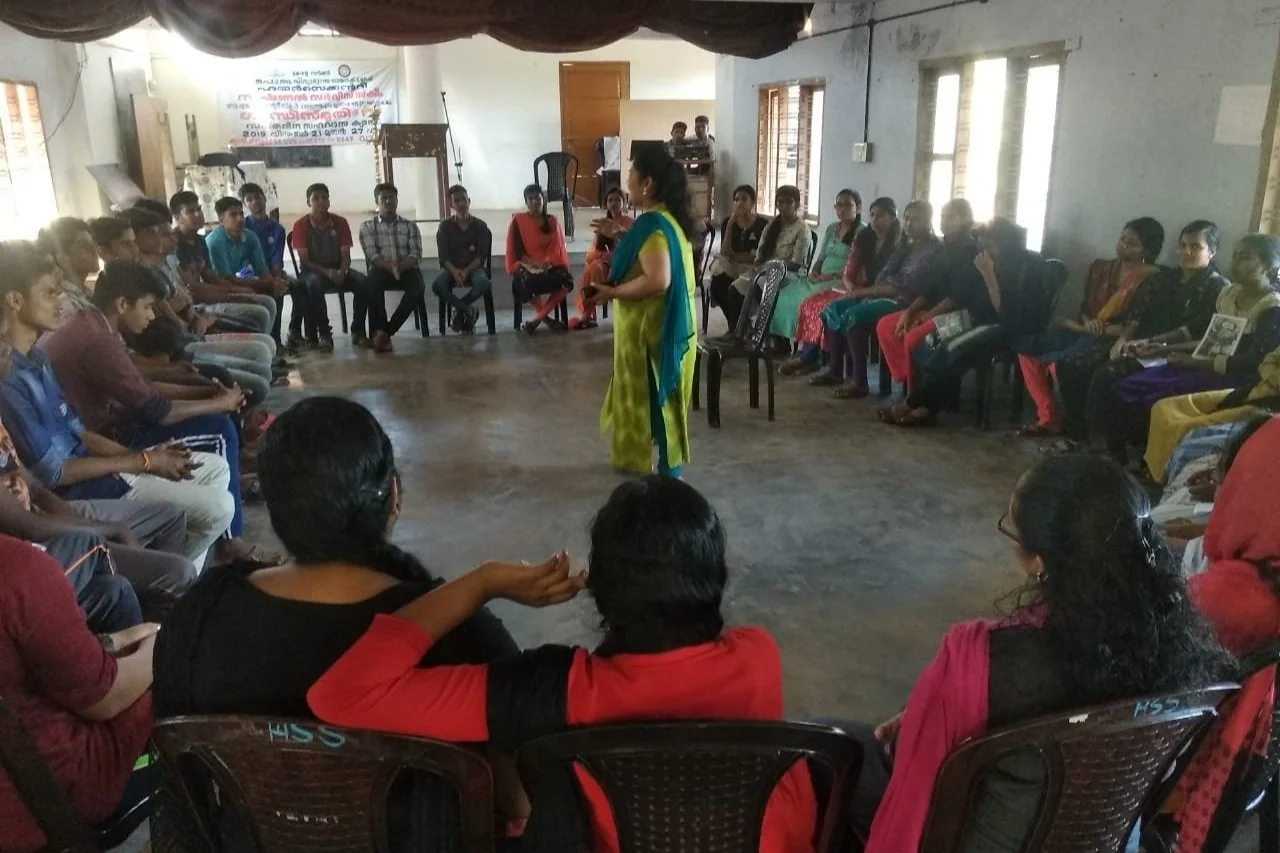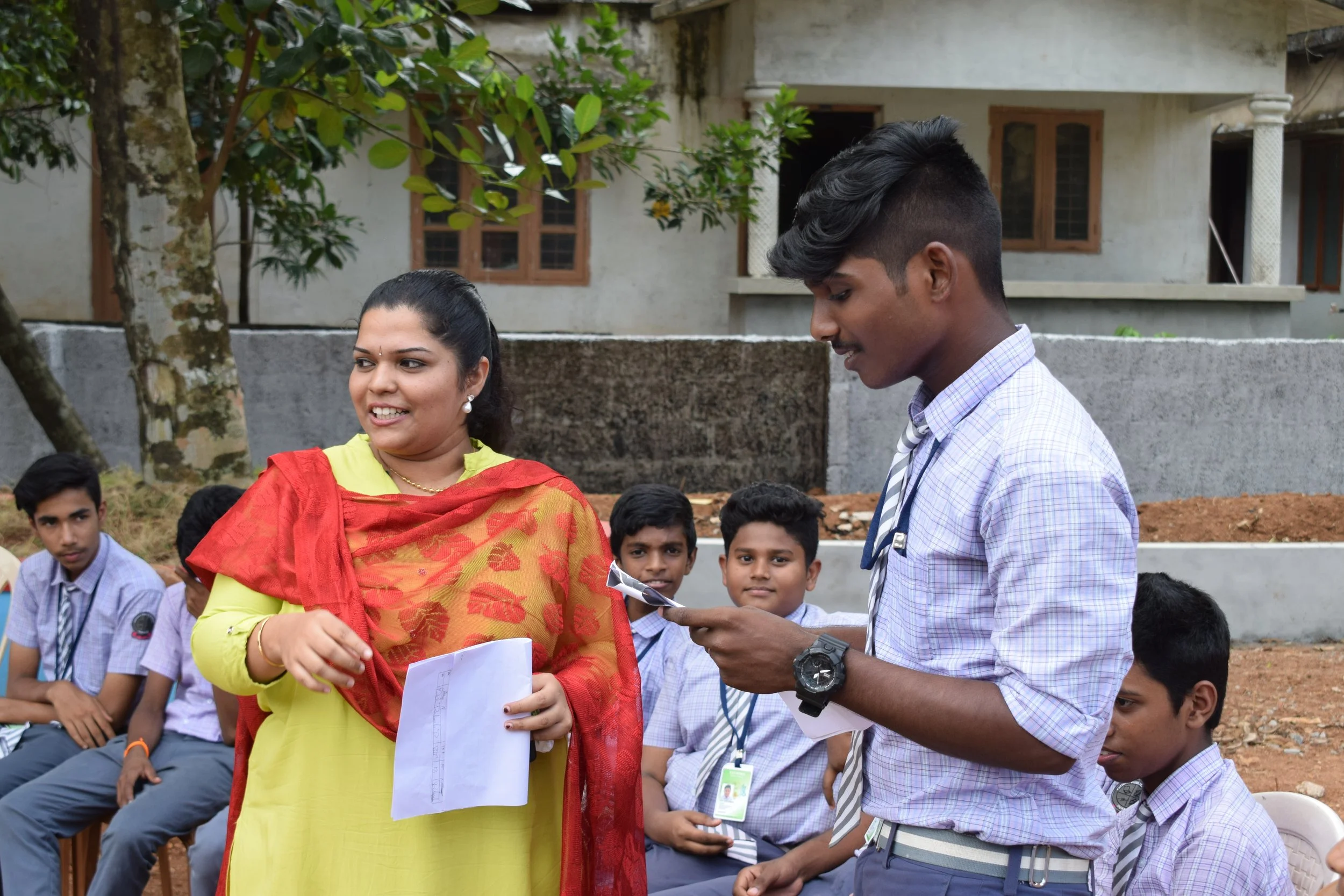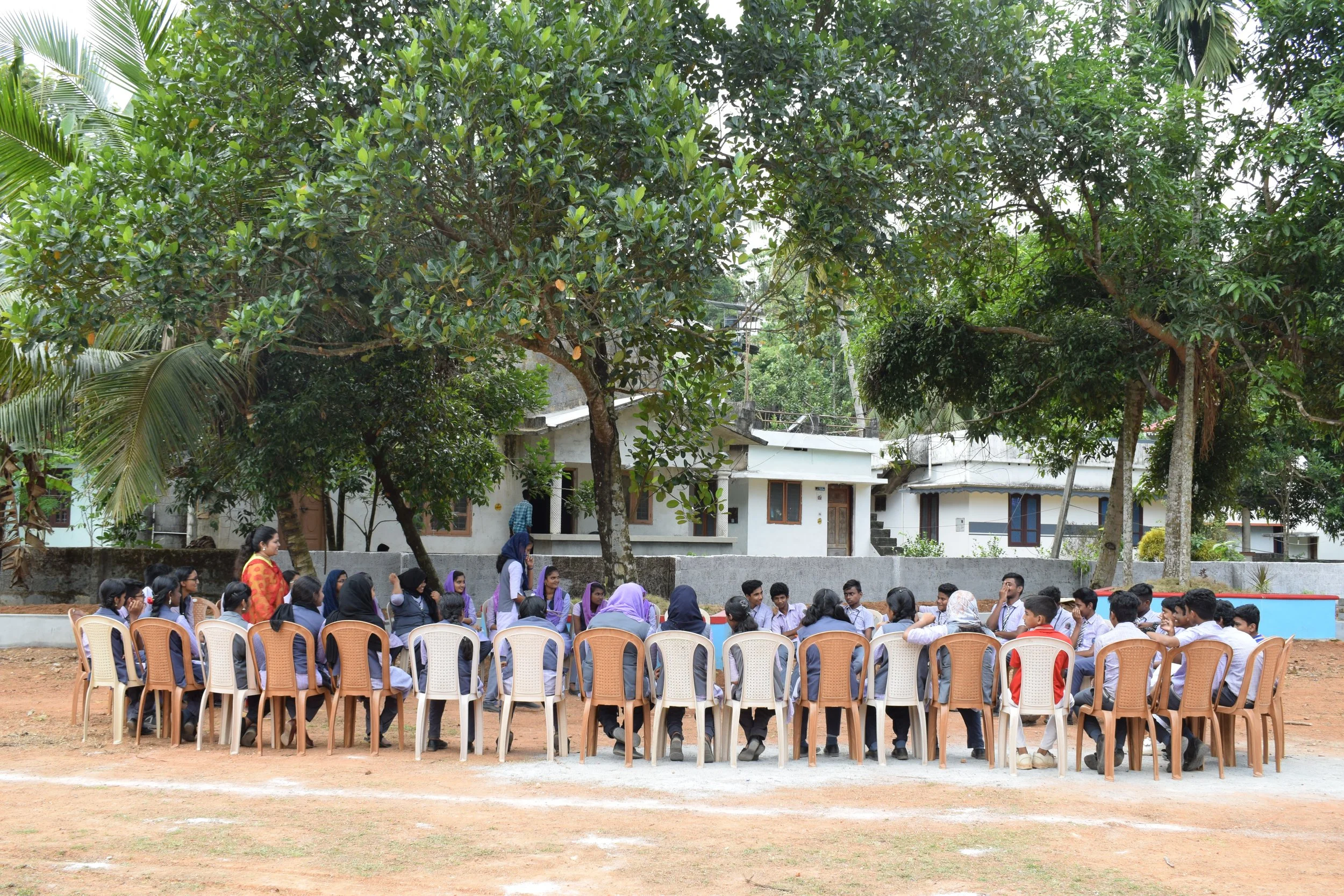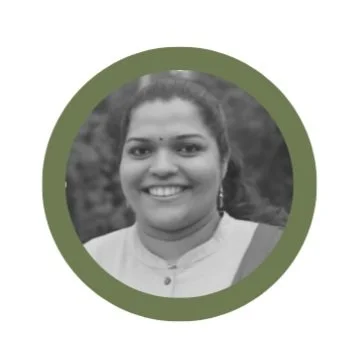Small Acts of Compassion Lead to Big Changes
Peacebuilding, Leadership, & the Environment
-Greshma Raju-
Greshma Raju believes that small acts of love and compassion lead to big changes in the global community - and she pursues the small acts in a big way! Her peace leadership story involves faith, servitude, deep compassion, and action. She is a reminder of the possibilities we each have to create impact in this world.
We met Greshma in December 2020 as an applicant for the following year’s Peace Practice Alliance program. Greshma completed her MA in International Peace Studies from the United Nations University for Peace, Costa Rica in 2019 and had just finished her internship at Positive Change for Marine Life. She returned home to India with a dream “to launch an online dialogue youth forum Ecopeace Cafe. The goal of this project is to promote the regeneration of the ecosystem. I believe it helps in strengthening harmony and peace within communities.” We loved being alongside her journey at this time, watching her deepen knowledge and curiously explore ways to make this dream a reality.
So how did Greshma find herself at the intersection of peacebuilding, leadership, and the environment? We recently interviewed her to learn more about her background, her story, and her vision.
The following are excerpts from the interview:
How did you find yourself involved in peacebuilding? Who or what inspired you?
The peace movements of the United Religions Initiative (URI) led by Dr. Abraham Karickam inspired me to be a peacebuilder. I attended one of their peace training camps in 2009 that transformed my way of thinking. As a fourteen-year-old high school student, I never experienced any forms of direct violence or came across any conflict situations in my life. So words like ‘peacebuilding,’ ‘conflict transformation,’ and ‘conflict resolutions’ were new to me. I was so curious to know more about peacebuilding. So I never wanted to miss those learning opportunities. I attended almost all the events organized by the United Religions Initiative in the South India-Sri Lanka region.
What was it that motivated you to become an agent of change, a peace leader - was it for you to help yourself or to help others?
In 2012 a peacebuilding training session organized by the Traveling Peace Academy of URI was held in Kerala. I had an opportunity to talk with the survivors of the Sri Lankan civil war during training sessions. The survivor asked me, “do you have fresh water to drink? Do you have a home to stay safe?” I said, “yes, I have.” I thought why [did] she ask me that. She said, “during those war days, we did not have enough water to drink and a home to stay in. Our minds were full of fears and anxiety.” That conversation made me realise the value of life and the privileges I have. This conversation really motivated me to be an agent of peace and share the stories of peace and peacemakers with the rest of the world. I love to connect people across the globe to celebrate diversities and share love and compassion through my small actions.
Since 2012, I have been really involved in peacebuilding and working with young people like me to create changes. Our group of young people discuss the world’s situations and explore ways we can contribute to a better and more peaceful world. So in 2015, I started an initiative called Jyothirgamaya Interfaith Cooperation Circle, a unit of URI with the support of my friends and family. We conducted an elocution competition for school students on the topic “World Peace.” That was the first initiative I started for sharing the message of peace with my community.
As you faced challenges, what helped you move forward in your path? Do you have any experiences that affirmed your desire to keep going?
I know peace is possible, but the path is not easy. It takes time and it needs patience. During the challenging times, I practice silence to understand my fears and practice deep self-reflection on how I can overcome that. I also communicate with my close friends about the challenges and that also helps me to overcome the stress and make better decisions.
I lost my grandfather, uncle, and aunt during the second wave of COVID-19 in India. That was a struggling moment for me and my family. During those days, my usual practice of silence made my situation worse so I decided to share my grievance with my companions. They offered me mental support, which was a really great help for me to overcome those challenging times. I started working on a project and converted my fears to courage and designed a project for teenagers in India. Those efforts really helped me to overcome my challenges and also showed the real light in my darkness.
What does your work as a peace leader look like in your current context?
I consider myself a peacebuilder who believes love for nature is love for humans. I am trying to connect humans with nature and create transformations in hundreds of lives through compassionate actions by loving and protecting nature.
I am currently focusing on a project called Ecopeace Teen Cafe. It’s an online transformative education and dialogue platform for teenagers. I completed the first training sessions for thirty selected students from different schools in India. The training sessions were focused on four main themes including community building, environment conservation, social justice, and peace. The four-month training started in October 2021; it consisted of workshops led by international experts, movie nights, and assignments that helped participants to learn about the real-life situations in their local communities and identify the connection with the global scenario. This project was implemented with the support of Euphrates Institute, The Pollination Project, United Religions Initiative, and Earth Charter International.
Ecopeace Teen Cafe is a tool to make my dreams a reality. I started a global campaign, Plant a peace tree at home. Through this campaign, our team encourages people to plant saplings at home, observe the growth, and see the beauty of nature. I believe that observing nature and loving nature has the potential to change our behaviors and make us more peaceful and loving individuals. So plant a peace tree at home and experience the difference!
I see my work with Ecopeace Teen Cafe as food for my soul. My work makes me more happy and satisfied with life. When I am happy with what I am doing that makes me happier in my personal life.
What are you most proud of in terms of your peacebuilding work so far?
I always had transformational experiences while attending peacebuilding programs. I felt proud when our teenagers who had attended Ecopeace Teen Cafe shared that they changed a lot, changed their perspectives about the “others” in their communities. Also, our team organized the Ecopeace Global Summit in the month of February 2022. We hosted panel discussions, interviews, and presentations of our participants during the summit. The way Ecopeace Summit connects people from different parts of the world and the new connections and collaborations created for more peace initiatives made me happy and proud.
How would you define peace leadership and explain what it means to you?
For me, peace leadership means the leadership which creates peaceful transformations with compassion in their community or family or workplace for the betterment of all. I believe most humans are peace leaders who care for others and work for the good. There are lots of unsung peace leaders among us who change the world with our small actions.
What, if any, regular practices do you have to foster peace in yourself and others?
Meditation and journaling help me to foster inner peace. I am an active listener and effective communicator that also helps to foster peace with others.
What keeps you in this work and motivates you to continue?
I work with young people and their energy motivates me every day to do more. I had an opportunity to visit India-Pakistan and South Korea-North Korea borders. During those visits, I found lots of differences but the commonness was the mind of young people who really want to reunite with their family members in both countries. I never saw hatred in their words but I saw love, care, and empathy in their words. So that spirit of unity and brotherhood keeps motivating me to connect people across the world and spread the message of peace.
What advice would you give to someone who is interested in becoming a peace leader?
The journey of peacebuilding is very special, we have to be [very] disciplined, use nonviolence communication methods, listen to others with an open heart, and be ready to work for peace tirelessly with an optimistic mindset. Peace is possible.

